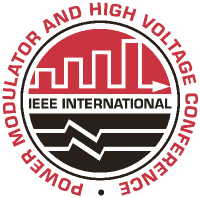Speaker
Guan-Jun Zhang
(Xi'an Jiaotong University)
Description
Surface flashover in vacuum across dielectrics usually happens in many pulse power devices, high power microwave (HPM), which seriously limits the transmission of HPM. Up to now, Secondary electron emission avalanche (SEEA) model is generally accepted to analyze the phenomena. The mechanism of SEEA is characterized into four continuous steps: (1) generation of initial electrons; (2) secondary electron emission avalanche; (3) accompanying with gas desorption subjected to secondary electron impact and collision ionization, and (4) gaseous plasma breakdown across dielectric window. Gas desorption stimulated by electron irradiation plays the dominant role. Accurate measurement of the gas composition and quantity of electron-stimulated desorption is very helpful to study the flashover mechanism and theoretical simulation.
In this paper, we set up an ESD device with a modified quadrupole mass spectrometer (QMS) surround with a cooling shroud. The incident electron energy varies from 2keV to 8keV in pulse method. First, residual gas species in the experiment chamber are analyzed. Then, a pluse electron beam impacts the sample surface to stimulate gas release and the mass spectra analysis of desorbed gas is carried out by QMS. The differences between mass spectra before and after electron irradiation are regarded as the amount of desorbed gases. We measure some typical HPM window dielectrics, such as polytetrafluoroethylene (PTFE), polyethylene (PE) and alumina ceramic (Al2O3). It is found that main desorbed gas components are similar, i.e. H2(m/e2), H2O(m/e18), CO(m/e28), CO2(m/e44), etc. H2 gas accounts for the majority of desorbed gas components. Organic materials (PTFE, PE) have higher desorption gas than that of Al2O3.
Primary author
Bai-peng Song
(State Key Laboratory of Electrical Insulation and Power Equipment, School of Electrical Engineering, Xi’an Jiaotong University, Xi’an, Shaanxi 710049, China)
Co-authors
Guan-Jun Zhang
(Xi'an Jiaotong University)
Guo-Qiang Su
(State Key Laboratory of Electrical Insulation and Power Equipment, School of Electrical Engineering, Xi’an Jiaotong University, Xi’an, Shaanxi 710049, China)
Mr
Jun Ikeda
(Saitama University, Saitama, Japan)
Prof.
Yasushi Yamano
(Saitama University, Saitama, Japan)
Peer reviewing
Paper
Paper files:
